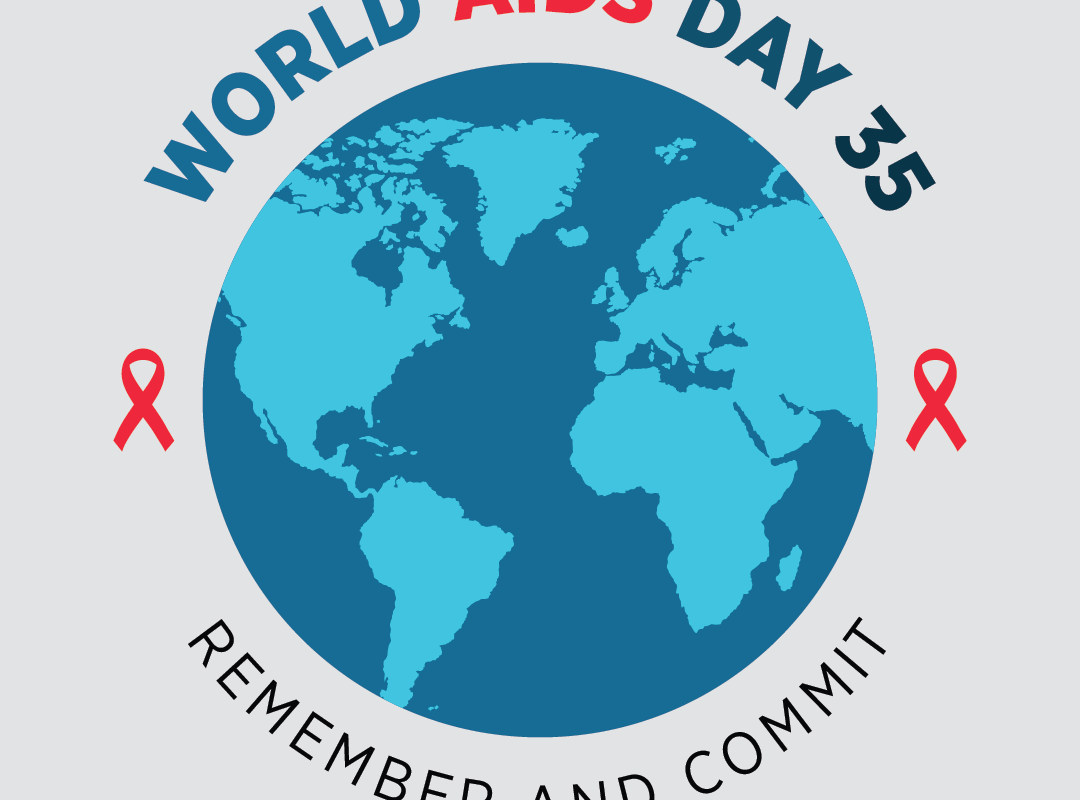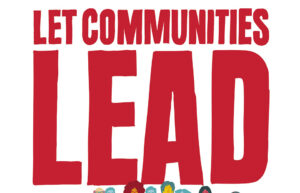
This year, the focus of World AIDS Day has to be more than a celebration of the achievements of communities – this year is a real call to action to enable and support communities in their leadership roles. We must honor the communities’ pivotal impact in the early days of the AIDS epidemic that was so instrumental in shaping the HIV response as well as global health at large. Today, we must again unleash the full potential of community leadership to raise awareness about the challenges that remain, ensure HIV prevention, empower timely diagnosis, augment care models, improve treatment outcomes, actualize more essential support services and to ultimately enable the end of AIDS. Communities can no longer be a sidecar to government policies, funding, and the current direction of HIV/AIDS work. We can no longer be a passenger on this journey, instead we must lead the conversation and the work going forward. We must first remember – “nothing about us without us” and regain our central voice in decision-making about directions in policy and programming that affect us directly.
Sima Bahous points to the mounting evidence that community leadership, particularly when it includes women’s organizing and leadership, improves HIV prevention and treatment outcomes. She notes that the resources are not following the evidence. Community-led responses and organizing are often under-resourced, unremunerated, under-supported, and under-acknowledged.
The UNAIDS campaign proposes that the world can end AIDS, with communities leading the way. Organizations of communities living with, at risk of, or affected by HIV are the frontline of progress in the HIV response. Communities connect people with person-centered public health services, build trust, innovate, monitor implementation of policies and services, and hold providers accountable. The UNAIDS suggests that today communities are being held back in their leadership. Funding shortages, policy and regulatory hurdles, capacity constraints, and crackdowns on civil society and on the human rights of marginalized communities, are obstructing the progress of HIV prevention and treatment services. If these obstacles are removed, community-led organizations can add even greater impetus to the global HIV response, advancing progress towards the end of AIDS.
UN Women proposes these solutions: invest in feminist, community-led HIV responses and movements. Invest in women’s and girls’ leadership and in their initiatives. Expand policy and civic spaces for their meaningful participation, support their essential work as community leaders, and listen to and incorporate their voices in decision-making. Let Women in Communities Lead.
When we support women’s community leadership and organizing, this will not only bring us more effective HIV responses, it will also move us towards overall greater gender equality and help dismantle the persisting barriers to ending AIDS, the ultimate goal we seek on this Day.
This year communities are leading World AIDS Day, and across the world are shaping the events and tailoring the detailed calls to their specific needs.
President Biden’s Proclamation encourages us to finish the fight! Think about how you can take action, pitch in, and bring your voice and wisdom.
A Proclamation on World AIDS Day, 2023
On World AIDS Day, my message is simple:
Let us finish the fight.
Since recognizing the first World AIDS Day 35 years ago, we have made enormous progress in preventing, detecting, and treating HIV — greatly reducing annual HIV diagnoses and transmission. But despite these advancements, about 39 million people continue to live with HIV, including more than one million people in the United States. Far too often, people living with HIV face discrimination that prevents them from accessing the care they need. So, as we reflect on our progress today, we must also come together to renew our promise to end the HIV/AIDS epidemic.
At home, my Administration has taken historic steps to achieve this goal. During my first year in office, I reestablished the White House Office of National AIDS Policy and launched a new National HIV/AIDS Strategy — a roadmap for using innovative community-driven solutions to end the HIV/AIDS epidemic in the United States by 2030. This year, my Administration also ended the disgraceful practice of banning gay and bisexual men from donating blood. We continue to work with State and community leaders to repeal or reform so-called HIV criminalization laws, which wrongly punish people for exposing others to HIV. I have asked the Congress for $850 million for the Department of Health and Human Services’ Ending the HIV Epidemic Initiative to aggressively reduce new HIV cases, fight the stigma that stops many people from getting care, and increase access to pre-exposure prophylaxis (PrEP) — a critical drug that can help prevent the spread of HIV.
We are also focused on ending HIV/AIDS as a public health threat worldwide by 2030 under the bipartisan President’s Emergency Plan for AIDS Relief (PEPFAR). PEPFAR has reduced transmissions, expanded testing, and saved more than 25 million lives in over 50 partner countries over the last two decades. Further, PEPFAR is focusing on forging a future where every HIV infection is prevented, every person has access to treatment, and every generation can live free from the stigma that too often surrounds HIV. My Administration is committed to working with the Congress to pass a clean PEPFAR reauthorization bill to extend this lifesaving bipartisan program for 5 years and end HIV/AIDS by 2030.
We are within striking distance of eliminating HIV-transmission. We have the science. We have the treatments. Most of all, we have each other. On this 35th World AIDS Day — let us honor all the families
For More Information:
-
Let Communities Lead https://www.unaids.org/en/2023-world-aids-day
-
Statement: Communities must lead on ending AIDS — women’s voices must lead communities https://www.unwomen.org/en/news-stories/statement/2023/12/statement-communities-must-lead-on-ending-aids-womens-voices-must-lead-communities
* Let Communities Lead! – WHO’s message for World AIDS Day 2023 https://www.who.int/multi-media/details/hiv—aids–let-communities-lead!—who-s-message-for-world-aids-day-2023
-
World AIDS Day https://www.usaid.gov/world-aids-day
-
World AIDS Day 2023 https://www.who.int/campaigns/world-aids-day/world-aids-day-2023

